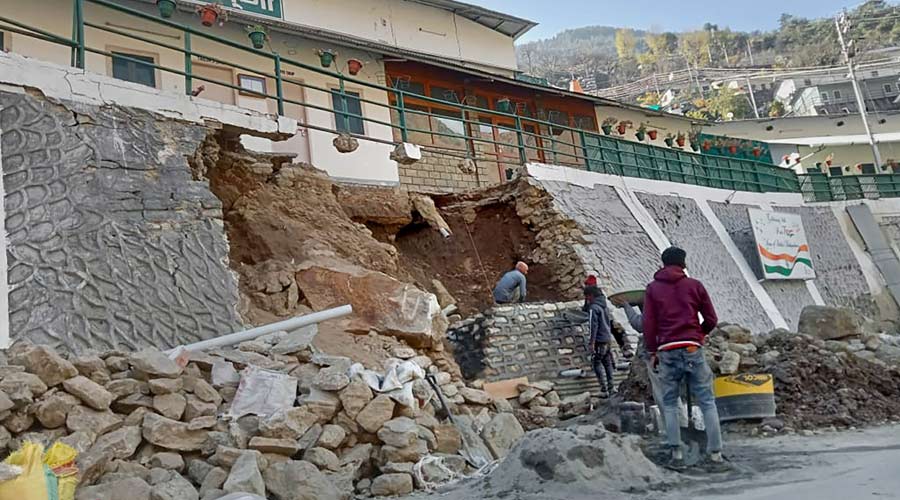A team of experts from CSIR-National Geophysical Research Institute (NGRI) will be leaving for Joshimath in Uttarakhand, which witnessed land subsidence recently, to conduct subsurface physical mapping of the affected town, a senior scientist has said.
The 10-member team headed by NGRI's senior principal scientist Anand K Pandey is expected to reach the site on January 13 and start their work from the following day. The tests are expected to continue for two weeks, and the collated data would then be analysed to ascertain the reason for the sinking of the ground there.
Joshimath, the gateway to famous pilgrimage sites like Badrinath and Hemkund Sahib and international skiing destination Auli, is facing a major challenge due to land subsidence.
"Our equipment is already on the way. On 13th January, the whole team will move to this site. And from 14th onwards, we will be there for at least two weeks to do the survey of that area. We are planning to do shallow subsurface physical mapping for water saturation and soil characteristics," Pandey told PTI.
He further said NGRI has been conducting several research works in Uttarakhand for the past four years in the areas of earthquakes, floods and landslides.
Pandey said they are going to do an electrical survey which is very important at such seismic zones.
The senior scientist said they will be using multi-channel analysis of surface waves (MASW), a non-destructive seismic method to evaluate material layer thickness and its shear wave velocity, to measure the thickness of the soil.
The team will also use ground penetration to find out minor cracks, water saturation of smaller size or fractures in the subsoil or cavities using ground penetrating radar.
"In addition to that, we are also using field mapping," he said.
NGRI is one of the largest scientific networks in Uttarakhand and in future, the institute will be able to provide early warnings about floods also, Pandey said.
The number of subsidence-affected homes rose to 678 while 27 more families were evacuated to safety, a bulletin from the Disaster Management Authority in Chamoli said on January 9, adding that 82 families have been shifted to safe locations in the town so far.
The Centre on Tuesday had announced that it will install micro-seismic observation systems in Joshimath.
Except for the headline, this story has not been edited by The Telegraph Online staff and has been published from a syndicated feed.











